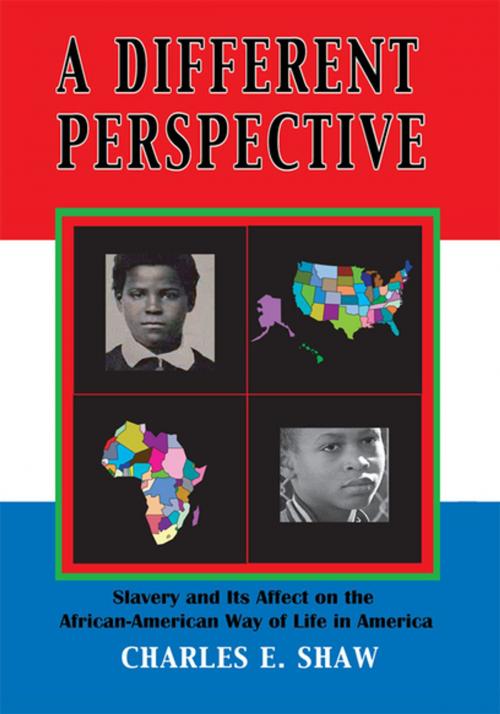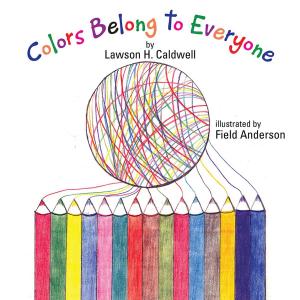A Different Perspective
Slavery and It's Affect on the African-American Way of Life in America
Nonfiction, History| Author: | Charles E. Shaw | ISBN: | 9781465317681 |
| Publisher: | Xlibris US | Publication: | June 21, 2007 |
| Imprint: | Xlibris US | Language: | English |
| Author: | Charles E. Shaw |
| ISBN: | 9781465317681 |
| Publisher: | Xlibris US |
| Publication: | June 21, 2007 |
| Imprint: | Xlibris US |
| Language: | English |
It is understood that the first recorded history of slavery had its beginning in the United States in 1619, when approximately twenty Africans were brought by a Dutch soldier and sold to the English colony of Jamestown, Virginia as indentured servants. The transformation from indentured servitude to racial slavery happened gradually. It wasnt until 1661 that a reference to slavery entered in Virginia law, directed at Caucasian servants who ran away with a black servant. It wouldnt be until the Slave Codes of 1705 that the status of African-Americans as slaves would be sealed. This would last for another 160 years, until after the end of the American Civil War with the ratification of the 13th Amendment in December 1865. However, it must be noted that the first imported Africans were brought as indentured servants not slaves. They were required, as white indentured servants to serve nine years. Many were brought to the British North American colonies, specifically Jamestown, Virginia in 1620.
It is most interesting to make note of the fact that slavery was subsequently legalized in the following states:
1641 Massachusetts becomes the first colony to legalize slavery.
1650 Connecticut legalizes slavery.
1661 Virginia officially recognizes slavery by statute.
1662 A Virginia statute declares that children born would have the same status as their mother.
1663 Maryland legalizes slavery.
1664 Slavery is legalized in New York and New Jersey.
The shift from indentured servants to African slaves was prompted by a dwindling class of former servants who had worked through the terms of their indentures and thus became competitors to their former masters. These newly freed servants were rarely able to support themselves comfortably, and the tobacco industry was increasingly dominated by large planters. This caused domestic unrest culminating in Bacons Rebellion. Eventually, chattel slavery became the norm in regions dominated by plantations that were owned by Englishmen who lived in Great Britain, where the British courts had made a series of contradictory rulings on the legality of slavery, which encouraged several thousand slaves to flee the newly-independent United States as refugees along with the retreating British in 1783.
It is understood that the first recorded history of slavery had its beginning in the United States in 1619, when approximately twenty Africans were brought by a Dutch soldier and sold to the English colony of Jamestown, Virginia as indentured servants. The transformation from indentured servitude to racial slavery happened gradually. It wasnt until 1661 that a reference to slavery entered in Virginia law, directed at Caucasian servants who ran away with a black servant. It wouldnt be until the Slave Codes of 1705 that the status of African-Americans as slaves would be sealed. This would last for another 160 years, until after the end of the American Civil War with the ratification of the 13th Amendment in December 1865. However, it must be noted that the first imported Africans were brought as indentured servants not slaves. They were required, as white indentured servants to serve nine years. Many were brought to the British North American colonies, specifically Jamestown, Virginia in 1620.
It is most interesting to make note of the fact that slavery was subsequently legalized in the following states:
1641 Massachusetts becomes the first colony to legalize slavery.
1650 Connecticut legalizes slavery.
1661 Virginia officially recognizes slavery by statute.
1662 A Virginia statute declares that children born would have the same status as their mother.
1663 Maryland legalizes slavery.
1664 Slavery is legalized in New York and New Jersey.
The shift from indentured servants to African slaves was prompted by a dwindling class of former servants who had worked through the terms of their indentures and thus became competitors to their former masters. These newly freed servants were rarely able to support themselves comfortably, and the tobacco industry was increasingly dominated by large planters. This caused domestic unrest culminating in Bacons Rebellion. Eventually, chattel slavery became the norm in regions dominated by plantations that were owned by Englishmen who lived in Great Britain, where the British courts had made a series of contradictory rulings on the legality of slavery, which encouraged several thousand slaves to flee the newly-independent United States as refugees along with the retreating British in 1783.















